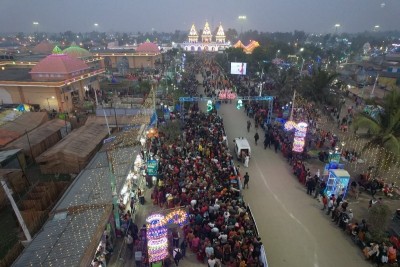 Justin Trudeau
Justin Trudeau
Canadian PM Justin Trudeau’s actions put global Sikh community in crossfire
The ongoing diplomatic rift between India and Canada is causing mounting concern within the Sikh community across North America and beyond, says Satnam Singh Chahal, executive director of the North American Punjabi Association (NAPA).
Chahal, a prominent voice in the Sikh diaspora, warns that the strained relations between the two nations could have far-reaching consequences for Sikhs, not only in Canada but across the globe.
“The escalating conflict between India and Canada needs to be addressed through constructive dialogue to protect the rights and well-being of the Sikh community worldwide,” Chahal said in an interview. As the leader of NAPA, an organization committed to serving the Indian diaspora, Chahal is particularly troubled by the tensions that have flared up following the assassination of Khalistan activist Hardeep Singh Nijjar in Surrey, Canada. The killing, and the subsequent diplomatic fallout, have brought to light the complex challenges faced by Sikhs living in western countries regarding identity, safety, and political representation.
Chahal, who has lived in the United States since 1997, expressed his concern over how the situation is affecting the Sikh diaspora. “Globally, Sikhs have a long-standing reputation for philanthropy and service to their communities, but the current atmosphere of hostility has created divisions, even within our own gurdwaras,” he explained. The Sikh faith is rooted in the principle of ‘sewa’—selfless service—and Sikhs have historically been known for their contributions to society. However, Chahal notes that recent political tensions are altering how the community is perceived in North America.
Chahal is particularly concerned about the rising incidents of discrimination and racism being reported by younger Sikh Americans and Canadians, particularly those who wear turbans and have beards. “The American Sikh community is feeling the strain, with reports of racism at schools, universities, and workplaces,” he said. “Misunderstandings about the community’s political affiliations are causing stigmatisation and social isolation.”
In North America, many Sikh families are finding themselves navigating delicate relationships with non-Sikh neighbors and friends, amid growing misunderstandings about their political stance. “There is a significant pressure within the community to take sides in the political narrative, especially siding with Khalistan extremists,” Chahal said. “While handful few call for solidarity with Nijjar’s cause, most maintain good relations with India, especially for those with family ties back home.”
Social media, according to Chahal, has exacerbated these tensions, amplifying certain voices and narratives, further deepening divisions within the diaspora. “Echo chambers online are making it harder for balanced discussions to take place,” he said.
As tensions rise between India and Canada, Sikhs in both countries are feeling increasingly anxious about their safety and the possibility of a backlash. Chahal stresses the importance of governments stepping in to protect minority communities. “NAPA calls on both the Indian and Canadian governments to ensure the protection of all communities, particularly minorities,” he urged.
Chahal also encouraged Sikh community members to engage more actively in the political process, advocating for their rights and ensuring their voices are heard. “The Sikh community depends on the support of the US, Canadian, and Indian governments to navigate these challenges,” he said. “It’s crucial for us to take an active role in shaping the discussions that will affect our future.”
(Image and Text Courtesy: Khalsavox.com)
Support Our Journalism
We cannot do without you.. your contribution supports unbiased journalism
IBNS is not driven by any ism- not wokeism, not racism, not skewed secularism, not hyper right-wing or left liberal ideals, nor by any hardline religious beliefs or hyper nationalism. We want to serve you good old objective news, as they are. We do not judge or preach. We let people decide for themselves. We only try to present factual and well-sourced news.







